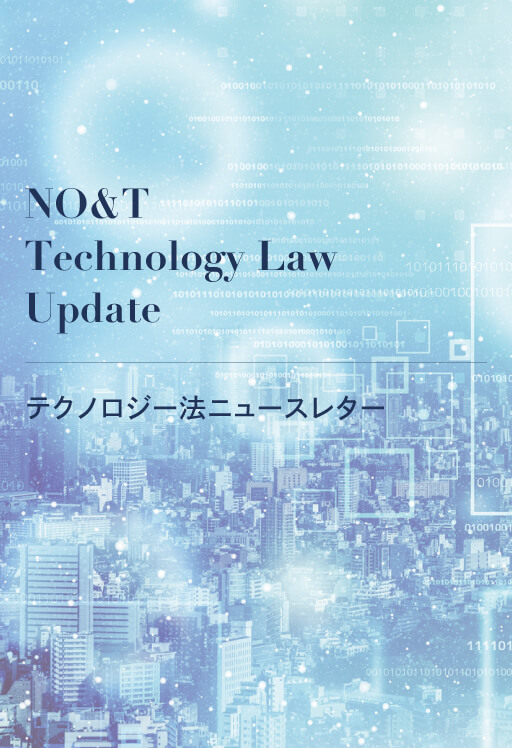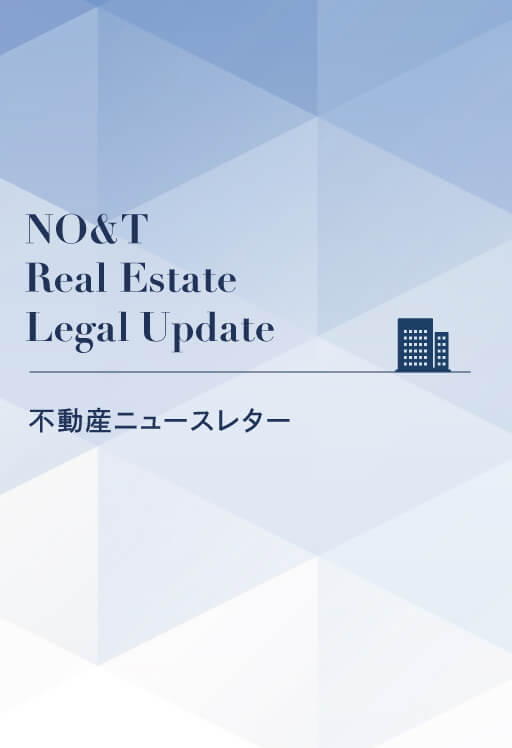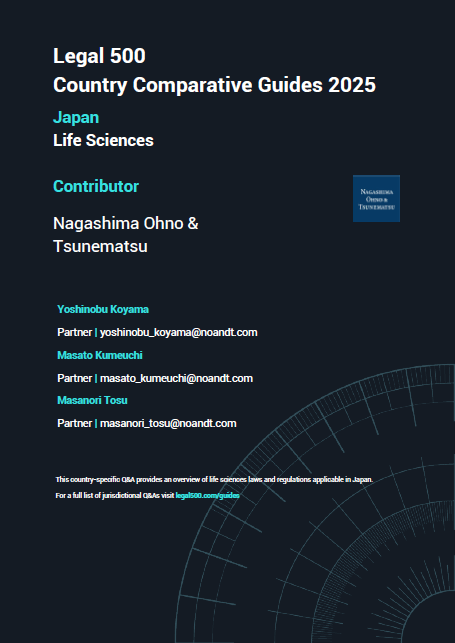
NO&T Technology Law Update
This article is also available in Japanese.
Under the Companies Act of Japan, the residential address information of the representative director and the representative executive officer of a stock company (Kabushiki-Kaisha), the representative members of a limited liability company (Godo-Kaisha), and members of general partnerships and limited partnerships (Gomei-Kaisha and Goshi-Kaisha) is required to be registered. Upon the filing for registration of a company, such address information, which is to be included in the corporate registration of the company, is made accessible by the public (Article 911, Paragraph 3, Item 11, etc. of the Companies Act). By making this information accessible by the public, potential claimants who seek to bring legal claims against a company or its designated representatives/members can easily identify the addresses at which legal documents can be served. In recent years, however, there has been growing concern over the disclosure of residential address information of such individuals. For example, founders of certain start-up companies have voiced concerns over the disclosure of their residential address information in corporate registrations, and the KEIDANREN (i.e., Japan Business Federation, one of the most prominent business associations in Japan) has demanded that the government refrain from disclosing such residential address information to protect the personal information and privacy rights of individuals.※1,※2
Against this backdrop, on April 16, 2024, the Ministry of Justice (“MOJ”) promulgated the Ministerial Ordinance for Partial Amendment to the Regulations on Commercial Registration (Ordinance of the Ministry of Justice No. 28 of 2024) (the “Ministerial Ordinance”). The Ministerial Ordinance establishes a new measure (the “Measure”) allowing for, upon satisfaction of certain requirements, (i) the concealment of part of the residential address information of the representative director, representative executive officer, and representative liquidator of a stock company (collectively, “Representative Directors”) to be disclosed in the certificate of registered information of such company, (ii) general location information (instead of the full residential address information) of Representative Directors to be provided in the stock company’s certificate of registered information, and (iii) a service for providing the concealed registration information to certain individuals for limited purposes.※3 In addition, MOJ published its guidelines for implementing the Measure on July 26, 2024, which provides a supplemental explanation of the Measure’s procedural requirements (the “Procedural Explanation”).
In this newsletter, we provide an outline of the Measure as well as highlight certain requirements and key considerations of the Measure.
The Measure provides for the concealment of part of the residential address information of a stock company’s Representative Directors which will substantially limit the address information contained in the certificate of registered information of such company, under certain conditions (Article 31-3 of the amended Regulations on Commercial Registration). Importantly, it should be noted that the Measure applies only to stock companies and not to other legal entities such as limited liability companies or partnerships. In addition, not all information regarding a Representative Director’s residential address is to be concealed under the Measure. Specifically, the Measure does not provide for concealment of the administrative division portion of the address information of Representative Directors, and the basic information regarding the relevant administrative division (i.e., the name of the relevant municipality such as the special ward in Tokyo or ward in the designated city where the individual resides) is to be provided in the stock company’s certificate of registered information. Further, it should be noted that the Measure will apply only when an application for the Measure (the “Measure Application”) is submitted together with an application for registration of a stock company’s incorporation or other relevant application; and residential address information of a stock company’s Representative Directors currently indicated in the stock company’s certificate of registered information will not be subject to concealment. In other words, residential address information of a stock company’s Representative Directors that has already been made public through the company’s registration will not be concealed by the Measure (i.e., the effect of the Measure is not retroactive to the date of a stock company’s initial registration).※4
The planned date of enforcement of the Ministerial Ordinance providing for the Measure, as announced at the public comments stage of the enactment process, was June 3, 2024; however, it was disclosed that the effective date of this Ministerial Ordinance (i.e., the date of enforcement) will be October 1, 2024.
As a point of clarification, the Ministerial Ordinance does not eliminate or alter any of the requirements under the Companies Act. Thus, even in the case where the Measure is applied, the full residential address information of Representative Directors of a stock company must be registered as in the past. Those who have a legal interest warranting inspection of documents containing the full address information of Representative Directors of a stock company may inspect relevant parts of documents annexed to the company’s corporate registration. The Measure aims to balance the rights of individuals who have a legitimate interest in knowing the full residential address information of Representative Directors against the protection of Representative Directors’ rights to privacy and protection of personal information.※5
The two requirements for application of the Measure are (A) the requirement to submit the Measure Application concurrently with the submission of an application for registration of the stock company’s incorporation or other relevant application and (B) the requirement to submit the required supporting documentation together with the Measure Application.
In order for the Measure to apply, it is necessary to submit the Measure Application concurrently with the submission of, as applicable, an application for registration of the stock company’s incorporation, an application for the appointment of a representative director, etc. (including reappointment), or an application for change of registration due to address change, etc. In other words, the Measure Application cannot be submitted as a stand-alone application.※6
When submitting a Measure Application, the applicant is required to provide the supporting documents specified in Article 31-3(1) of the amended Regulations on Commercial Registration, which vary depending upon the status of the stock company and relevant circumstances. Specifically, the following supporting documents must be submitted as part of the Measure Application (Article 31-3(1) of the amended Regulations on Commercial Registration):
According to the amended Regulations on Commercial Registration, the relevant government official is to approve the Measure Application and apply the Measure when he/she finds it “appropriate” (Article 31-3(2) of the amended Regulations on Commercial Registration). In determining appropriateness, the official is to ascertain whether or not the requirements for approval of a Measure Application, such as the provision of the required supporting documentation, have been satisfied.※7
In the case where (i) a Measure Application submitted by a stock company is approved and the Measure is applied, (ii) a new application for registration with respect to such stock company is filed, and (iii) there is no change in the address information of Representative Directors of such stock company, the Measure will continue to apply (i.e., the address information of Representative Directors will continue to be concealed) (Article 31-3(3) of the amended Regulations on Commercial Registration). The Measure will cease to apply (a) upon the relevant government official’s receipt of a notification from the relevant stock company indicating that it no longer desires to have the Measure apply for a particular reason, (b) in the case where the head office of such stock company is no longer located at the address indicated in its corporate registration, or in the event such stock company, which was a listed company at the time of submission of its Measure Application, ceases to be a listed company, or (c) in the event a reason to discontinue the concealment treatment of address information arises (Article 31-3(4) of the amended Regulations on Commercial Registration). Details of the foregoing such as what circumstances constitute “a stock company’s head office not being deemed to exist at the location indicated in its corporate registration” are provided in the Procedural Explanation.
In addition, MOJ has highlighted the following two items as practical notes.※8
It is expected that the Measure under the Ministerial Ordinance will allay concerns regarding the disclosure of residential address information of Representative Directors, and thereby support the creation of new companies and businesses by entrepreneurs and others. However, as mentioned above, the Measure applies only to stock companies and in this regard its effect is limited. Often foreign companies seeking to establish a subsidiary in Japan will choose to incorporate a limited liability company which currently is not subject to the Measure. In response to the introduction of the Measure and its application only to stock companies, foreign companies may consider incorporating their Japanese subsidiaries as stock companies over other entity types.
The issue of disclosure of residential address information in government documents extends beyond company registration documents. Residential address information of representatives of general incorporated associations and general incorporated foundations is included in documents created upon the filing for registration of such entities in accordance with the Act on General Incorporated Associations and General Incorporated Foundations, and similar concerns over the disclosure of such information may arise. According to the Responses to Public Comments, the topic of expanding the scope of the Measure to other types of legal entities will continue to be discussed within MOJ.※9
If a limited liability company desires to have the Measure apply to it without waiting for a possible expansion of the scope of the Measure to limited liability companies, it may take steps to convert its corporate form to a stock company and thereafter seek to have the Measure apply (provided, however, that residential address information of its representative members already been made public through the company’s registration may not be concealed as discussed above). The consequences of such change should be considered carefully as it may result in new compliance requirements as well as tax treatment. For example, when a limited liability company changes its corporate form to a stock company, the appointment of an auditor may become necessary and the requirements for public notice of account settlement may differ.
*1
Shigeru Morimoto and Katsumi Yamamoto “Commentary of Companies Act – Volume 20: Miscellaneous Provisions (2)” (ShojiHomu, 2016), p. 272
*2
Japan Business Federation (Keidanren) “Opinions on the interim draft regarding amendments to the Companies Act (related to corporate governance), focusing on changes to the Companies Act in response to digitization and globalization considerations (April 17, 2018)”
*3
See MOJ webpage at the following link: https://www.moj.go.jp/MINJI/minji06_00210.html.
*4
See No. 6 and No. 36 of MOJ’s Civil Affairs Bureau, Commercial Division’s publication: “Concerning the Result of Public Comments on the Draft Ministerial Ordinance for Partial Amendment to the Regulations on Commercial Registration” (the “Responses to Public Comments”).
*5
See Responses to Public Comments No. 13.
*6
See Responses to Public Comments No. 25.
*7
See Responses to Public Comments No. 14.
*8
Website of MOJ (https://www.moj.go.jp/MINJI/minji06_00210.html)
*9
See Responses to Public Comments No. 12.
This newsletter is given as general information for reference purposes only and therefore does not constitute our firm’s legal advice. Any opinion stated in this newsletter is a personal view of the author(s) and not our firm’s official view. For any specific matter or legal issue, please do not rely on this newsletter but make sure to consult a legal adviser. We would be delighted to answer your questions, if any.


Chattong Sunthorn-opas, Thunsinee Sungmongkol (Co-author)


Ario Putra Pamungkas


Long Nguyen


Rashmi Grover


Chattong Sunthorn-opas, Thunsinee Sungmongkol (Co-author)


Long Nguyen


Rashmi Grover


Anastasia Jessica Maureen


Takashi Itokawa, Takahiro Kitagawa (Co-author)


Kenji Utsumi, Masatsura Kadota, Junji Yamanaka (Co-author)


(April 2025)
Akemi Suzuki, Shuichi Nishimura, Kohei Mano (Co-author)


Rashmi Grover


(April 2025)
Akemi Suzuki, Shuichi Nishimura, Kohei Mano (Co-author)


(September 2024)
Keiko Shimizu, Kensuke Suzuki, Takashi Itokawa (Co-author)


(October 2024)
Keiko Shimizu, Koichiro Yoshimura (Co-author)


(October 2024)
Yasuhiro Kasahara, Masaki Mizukoshi, Yoshitaka Kato (Co-author)


(June 2025)
Keiji Tonomura, Yukiko Konno, Minh Thi Cao Koike, Yoshiteru Matsuzaki (Co-author), Masahiro Kondo (Contributor)


Yuan Yao Lee


(March 2025)
Yoshinobu Koyama, Masato Kumeuchi, Masanori Tosu (Co-author)


Patricia O. Ko